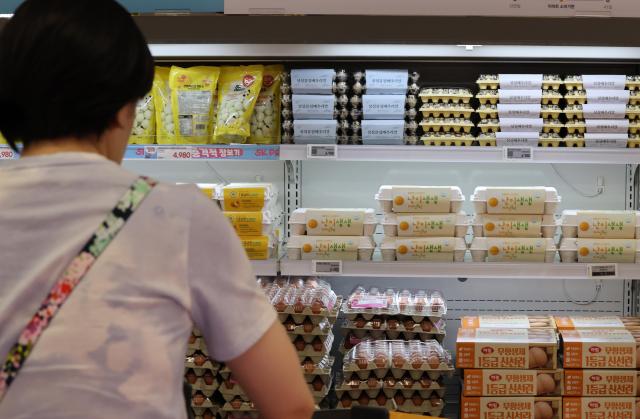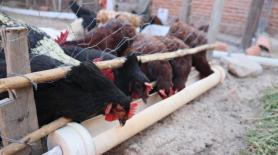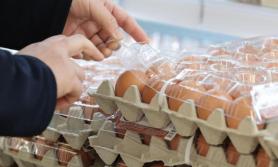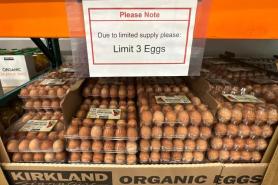
The Korea Rural Economic Institute projected Friday wholesale egg prices would reach 1,900 to 1,950 won (around $1.43 to $1.47) per 10 extra-large eggs in September, marking a potential 15.7 percent increase from the same period last year. The price surge, which began in April, has persisted for nearly six months. Wholesale egg prices breached the 1,900 won threshold in June with a 16.7 percent year-on-year increase, followed by rises of 19.4 percent in July and 20.1 percent in August.
The institute attributed the sustained price pressure to an aging laying hen population and heat-related supply disruptions. Daily egg production is forecast to drop 1.1 percent to 49 million eggs this month compared to last year.
Industry analysts point to additional factors contributing to the supply crunch, including recent animal welfare regulations that limit the number of hens per cage and outbreaks of highly pathogenic avian influenza that have reduced overall production capacity.
Consumer prices have already felt the impact, with retail egg costs jumping 8 percent over the past year, according to Statistics Korea. The average nationwide price for 30 extra-large eggs hit 7,356 won in August, the highest level since July 2021.
The government has scrambled to address mounting inflation concerns ahead of Chuseok, when demand for agricultural products traditionally spikes. Officials plan discount campaigns with major retailers and egg producers to ease the burden on consumers.
Authorities acknowledged they have yet to identify the root causes behind the dramatic price increases. The Agricultural Ministry said investigations into potential price manipulation remain ongoing, while industry groups have pledged to normalize pricing within the week.
The Rural Development Administration reported successful trials of automated temperature control systems in chicken farms during the summer months, citing their critical importance for poultry welfare as chickens struggle to regulate body temperature in extreme heat, which significantly reduces quality egg production.
Relief may not come until after the holiday period ends. The institute forecasts wholesale prices will remain around 1,900 won through November before declining as new laying hens enter production and seasonal demand subsides.
Copyright ⓒ Aju Press All rights reserved.




